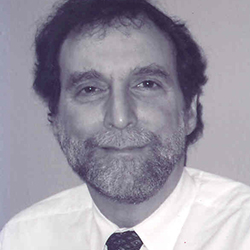David Rosner Ph.D., M.P.H.
 Ronald H. Lauterstein Professor
Ronald H. Lauterstein Professor
Co-Director, Center for the History & Ethics of Public Health
Columbia University
Email: dr289@columbia.edu
Discipline: Public Health, History
Expertise: Health Risks, Public and Population Health, Urban Health, Occupational Health
Investigator Award 
The Un-Natural History of Public Health: From Epidemics and Injuries to Chronic Illness and Bio-TerrorismAward Year: 2002 Since September 2001, America's public health infrastructure has received more attention than at any time since the polio vaccination campaigns of the 1950s. David Rosner, Ph.D., M.P.H. and co-principal investigator Gerald Markowitz, Ph.D. address the effects on the field of public health of new mandates and resources aimed at protecting Americans from bioterrorism. Their project, The Un-Natural History of Public Health, takes a fresh look at the history of public health and examines the U.S. experience with crises, disease, and mortality from the 1900s to the present. The investigators will consider the physical, political, and social changes that have affected the American experience of illness and death and the structure of public health services. Their work will provide a broad historical perspective and new insights for future public health policymaking.
Background 
David Rosner is Ronald H. Lauterstein Professor of History and Public Health at Columbia University and co-Director of the Center for the History of Public Health at Columbia's Mailman School of Public Health. He and Gerald Markowitz authored Deceit and Denial: The Deadly Politics of Industrial Pollution (2002). Their newest book entitled Are We Ready?: Public Health since 9/11 appeared on the fifth anniversary of September 11th. He received his B.A. from City College of New York, M.P.H from the University of Massachusetts and his doctorate from Harvard in the History of Science. Before moving to Columbia in 1998, he was university distinguished professor of history at the City University of New York. In addition to numerous grants, he has been a Guggenheim Fellow, a National Endowment for the Humanities Fellow and a Josiah Macy Fellow. Presently, he is the recipient of an Investigator Award and a grant from the Milbank Memorial Fund. He has been awarded the Distinguished Scholar's Prize from the City University, the Viseltear Prize for Outstanding Work in the History of Public Health from the APHA and the Distinguished Alumnus Award from the University of Massachusetts. He is author of A Once Charitable Enterprise (1982, 1987), and editor of Hives of Sickness: Epidemics and Public Health in New York City (1995) and Health Care in America: Essays in Social History (with Susan Reverby). In addition, he has co-authored and edited with Gerald Markowitz numerous books and articles, including Deadly Dust: Silicosis and the Politics of Occupational Disease in Twentieth Century America (1991, 1994, new edition: 2005); Children, Race, and Power: Kenneth and Mamie Clark's Northside Center (1996, 2000); Dying for Work (1987); and Slaves of the Depression: Workers' Letters About Life on the Job (1987).
- Colgrove, J., Markowitz, G., Rosner, D. Introduction: The Contested Boundaries of American Public Health, In The Contested Boundaries of American Public Health, eds. Colgrove, J., Markowitz, G., Rosner, D. New Brunswick: Rutgers University Press, 1-12,
- Rosner, D., Markowitz, G. The Challenge of 9/11 to the Ideologies of Population and Public Health, In The Contested Boundaries of American Public Health, eds. Colgrove, J., Markowitz, G., Rosner, D. New Brunswick: Rutgers University Press, 203-25, 2008.
- Markowitz, G., Rosner, D. Building a Toxic Environment: Historical Controversies over the Past and Future of Public Health, In History and Health Policy in the United States: Putting the Past Back In, eds. Stevens, R.A., Rosenberg, C.E., Burns, L.R. New
- Rosner, D. 'Spanish Flu, or Whatever It Is. . . .': The Paradox of Public Health in a Time of Crisis. Public Health Reports, 2010, 125(3): 38-47.
- Rosner, D., Markowitz, G. The Politics of Lead Toxicology and the Devastating Consequences for Children. American J of Industrial Medicine, 2007, 50(10): 740-56.
- Rosner, D., Markowitz, G., Lanphear, B. J. Lockhart Gibson and the Discovery of the Impact of Lead Pigments on Children's Health: A Review of a Century of Knowledge. Public Health Reports, 2005, 120(3): 301-4.
- Rosner, D., Markowitz, G. Standing up to the Lead Industry: An Interview with Herbert Needleman. Interview by David Rosner and Gerald Markowitz. Public Health Reports, 2005, 120(3): 330-7.
- Colgrove, J., Markowitz, G., Rosner, D. (eds.). The Contested Boundaries of American Public Health. New Brunswick: Rutgers University Press, 2008.
- Rosner, D., Markowitz, G. Are We Ready? Public Health Since 9/11. Milbank Memorial Fund and University of California Press, 2006.
- Rosner, D., Markowitz, G. Deadly Dust: Silicosis and the Continuing Struggle for Workers' Health (New and Expanded Edition). University of Michigan Press, 2006.
